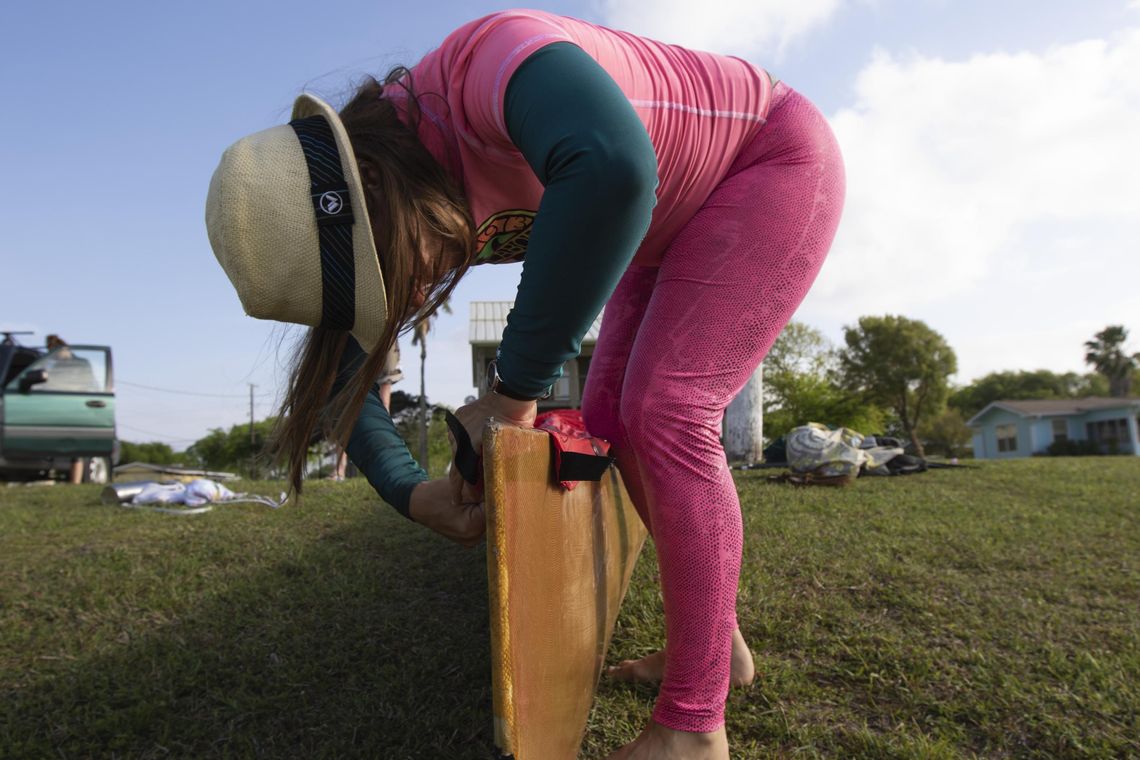Kelly Stone makes her way down the stairs of her apartment building on South LBJ Drive to the parking lot below as she does several times a week. She carefully uncovers her rented C-1 boat and secures her GPS and other items.
Almost throwing the boat up into the air, Stone catches it and heaves it onto her shoulder and begins walking the three blocks to Veramendi Plaza Park. There she’ll start her next round of training for the Texas Water Safari, the toughest canoe race in the world.
Texas Water Safari is a 260-mile race that starts at Spring Lake on the second Saturday in June. Racers have just 100 hours to get to the finish line in Seadrift, while navigating rapids, log jams and the limits of human endurance to claim the coveted bragging rights of finishing the race.








